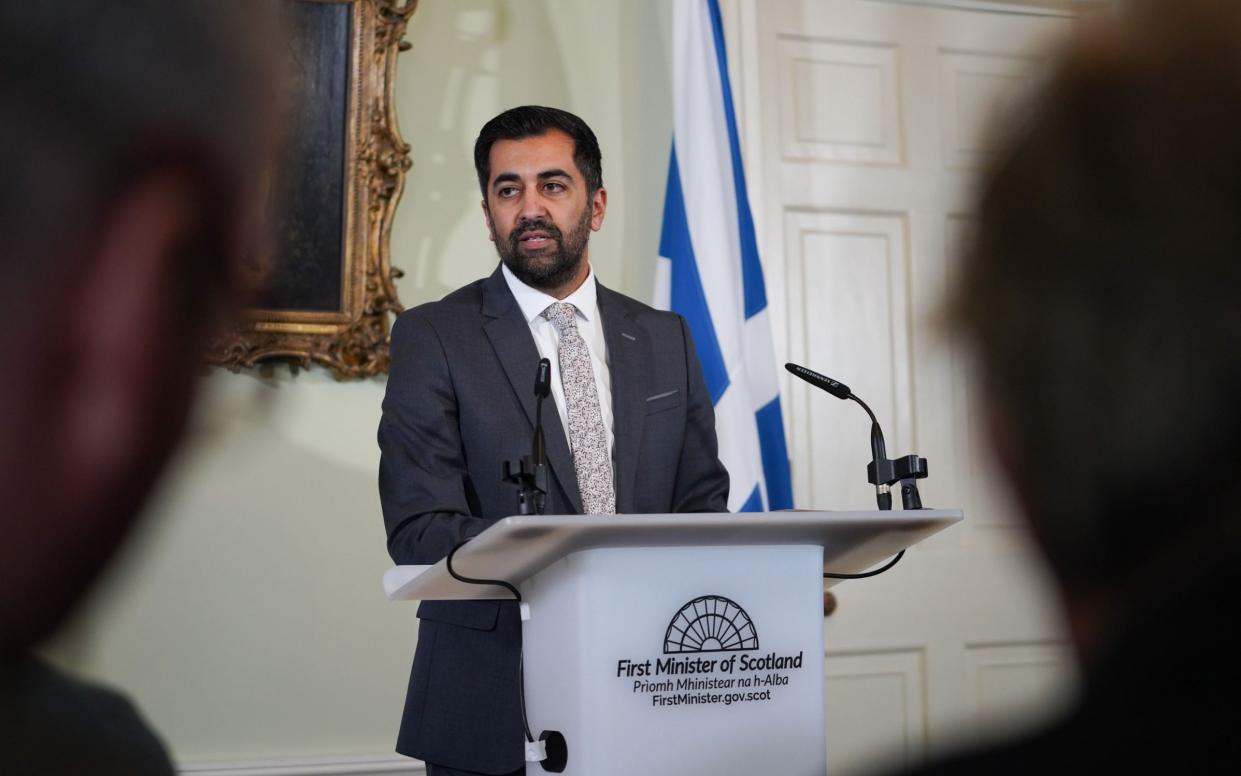Humza Yousaf’s grave miscalculation

Just a few days after he peremptorily severed his government’s coalition agreement with the Greens, Humza Yousaf had to return to the same lectern in Edinburgh’s Bute House to announce his resignation as SNP leader and first minister of Scotland.
It is remarkable that he did not see this coming. Indeed, the fact that he didn’t is a further sign that he was not up to the job – a conclusion that had been reached by many in his party and beyond some months before.
Politics can be a brutal business, Mr Yousaf said, and he bore no one any ill will for his fate. But his problem was that he was very bad at politics. As miscalculations go, his announcement last week of an end to the pact with the Greens was spectacular.
His ostensible motivation was to show who was in charge and to take control of Scotland’s political agenda, which has been consumed by arguments over gender identity and climate-change targets. With a Westminster election looming he hoped to move the debate on to territory more reflective of immediate voter concerns.
One observer said he wanted to get on the front foot but succeeded only in shooting himself in it. He sought to continue in office at the head of a minority government, still relying on the Greens for support.
But the manner of the breach angered his erstwhile partners, who joined with other opposition parties to support a no-confidence motion in his leadership.
Mr Yousaf was right to say that in a coalition trust between partners is essential and he had lost it. He jumped before he was pushed.
The SNP now has 28 days to choose a new leader who might be acceptable enough to the Greens to enable the Nationalists to carry on as a minority administration. This is unlikely to be Kate Forbes, who came second last time but whose views on gender and same-sex marriage are anathema to the Left wing.
One possibility is John Swinney, a former leader of the SNP in the early days of the Scottish Parliament and later a successful finance minister who even brokered budget deals with the Conservatives.
If no one can be found, or an alternative coalition forged, then an election to Holyrood would follow at which the SNP, mired in crisis, would face a serious setback, ending its apparently inexorable advance to become Scotland’s dominant party.


